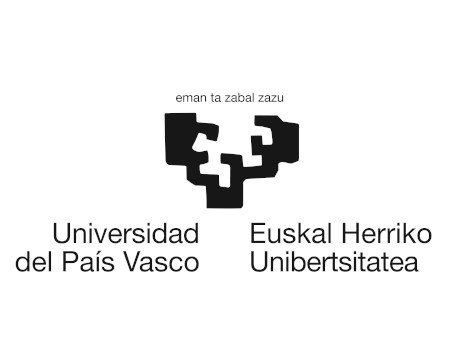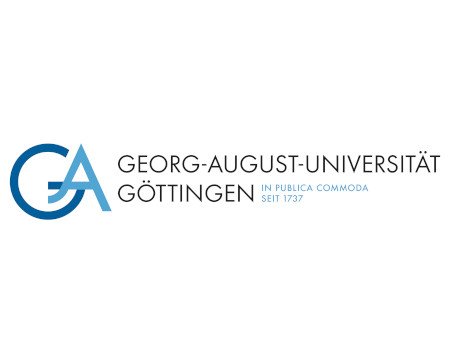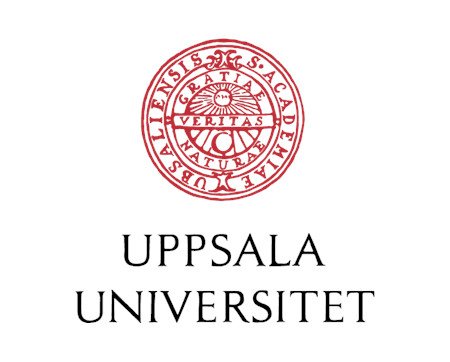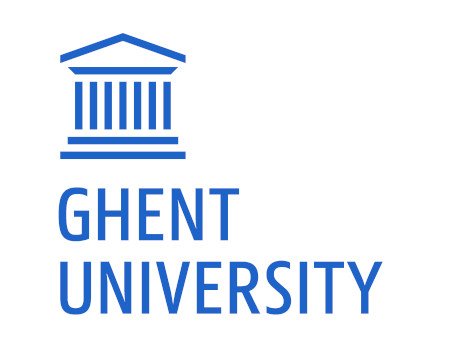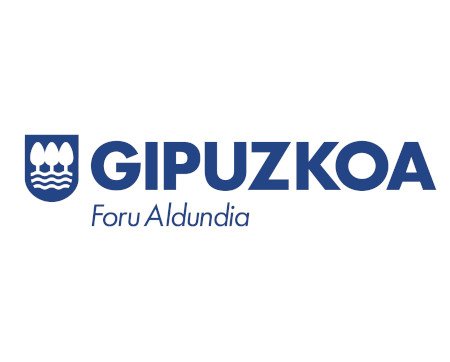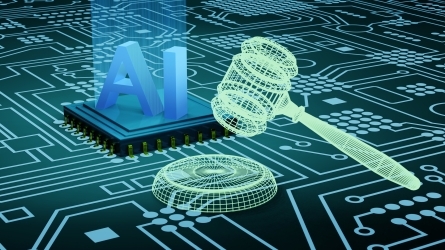
Artificial Intelligence and Law: Technical and legal challenges
Descripción
Los sistemas de Inteligencia Artificial (IA) se están desarrollando a un ritmo creciente y ya están presentes en casi todos los aspectos de nuestra vida. Hay consenso en que, por el impacto que puedan tener, estos sistemas deben regularse con sumo cuidado. Europa ha tomado la iniciativa con la reciente aprobación de la AI Act, la primera normativa sobre sistemas IA en el mundo.
Esto abre un nuevo contexto en el que los profesionales de la IA y del derecho deberán trabajar conjuntamente en los diferentes pasos del ciclo de vida de los sistemas IA, desde su concepción y desarrollo hasta la resolución de cualquier posible problema derivado de su uso. El primer paso para lograr una colaboración adecuada es una buena comunicación y comprensión, lo que exige que los dos tipos de perfiles sean capaces de comprender las ideas básicas que hay detrás del trabajo del resto.
El objetivo de esta jornada es dar un paso en esa dirección, ofreciendo una visión global de la IA y su desarrollo en un escenario regulado. Además, será una primera experiencia en la que estos dos tipos de profesionales tendrán la oportunidad de debatir juntos estos temas.
Objetivos
Difusión de los retos técnicos y jurídicos actuales y futuros en la regulación de los sistemas de Inteligencia Artificial.
Fomento del debate interdisciplinar sobre las implicaciones de un marco regulado en el desarrollo de sistemas de Inteligencia Artificial.
Público objetivo al que está dirigida la actividad
- Alumnado universitario
- Profesorado
- Profesionales
Metodología
El programa de la jornada incluirá charlas (concentradas en un solo día) y trabajo práctico. Habrá dos tipos de participación, taller completo o solo charlas. El número de participantes que solo asisten a las conferencias no se limitará, pero en el trabajo práctico las plazas serán limitadas, 30 en total, 15 de perfil técnico y 15 de perfil jurídico.
En el trabajo práctico, los y las participantes deberán trabajar en equipos (que combinen los dos tipos de perfiles) en un caso real. Al final del trabajo en grupo, los grupos expondrán las conclusiones y debatirán los resultados, debate en el que tendrán la oportunidad de participar todos y todas las participantes, incluso quienes solo asistan a las conferencias.
Directoras/es

Usue Mori Carrascal
Euskal Herriko Unibertsitatea
Usue Mori obtained a Bachelors degree in Mathematics and a PhD in Computer Engineering from the University of Basque Country UPV/EHU in 2010 and 2015 respectively. She completed a master's degree in Applied Mathematics, Statistics and Computing and a master's degree in Computer Engineering and Intelligent Systems in 2011 and 2013, respectively. Currently, she is an associate professor in the Department of Computer Science and Artificial Intelligence at the University of the Basque Country UPV/EHU and teaches various subjects in the field of mathematics, statistics and machine learning. As research merits, it should be noted that she has participated in more than 20 projects of regional, state and European calls, being IP in four of these projects. She has published 18 articles in JCR journals, 12 of them located in the first quartile and she also has 4 contributions in national and international conferences. She has also participated in 6 R&D contracts with companies of the private industrial and public sector, being IP the most recent. In addition, she has co-directed two doctoral theses and today she co-directs 3 doctoral theses with other researchers.
Borja Calvo es Licenciado en Bioquímica y doctor en Ingeniería Informática por la Universidad del País Vasco. Durante su tesis doctoral trabajó en el uso de métodos de Inteligencia Artificial en el campo de la Biomedicina. En 2011 pasó a formar parte como profesor del Departamento de Ciencias de la Computación e Inteligencia Artificial donde compagina su investigación en el campo del Machine Learning con la docencia y, actualmente, la coordinación del Master en Ingeniería Computacional y Sistemas Inteligentes de la Facultad de Informática y Vicedecano de Relaciones Externas e Investigación de la Facultad de Informática de Donostia / San Sebastián
Ponentes

Itziar Alkorta Idiakez
UPV/EHU
Doctora en Derecho y profesora titular de Derecho Civil de la UPV/EHU. Su principal línea de investigación es la bioética, tema sobre el que ha publicado varias monografías, artículos científicos y de divulgación. Ha participado en 4 proyectos europeos de investigación del VI y VII programa marco europeo, así como en múltiples proyectos de investigación del Programa Nacional. Ha sido profesora visitante del Hastings Center for Bioethics de Nueva York, del Center for Bioethics de la Universidad de Filadelfia, y de la Universidad de Burdeos. Fue Secretaria General de Eusko Ikaskuntza/Sociedad de Estudios Vascos, y posteriormente de Jakiunde, Academia de las Ciencias, Artes y Letras. Vicerrectora de calidad e innovación docente de la UPV/EHU entre 2008-2012 y responsable del desarrollo del modelo educativo, así como de programas de calidad, y de formación y evaluación del profesorado universitario. Entre 2013 y 2015 fue Viceconsejera de Universidades e Investigación del Gobierno Vasco.

Ainhize Barrainkua Aguirre
Basque Center for Applied Mathematics, Doktoregaia
Ainhize Barrainkua obtained her Bachelor's degrees in Physics and Electronic Engineering from the University of the Basque Country UPV/EHU in 2020. She received her Master's degree in Computer Engineering and Artificial Intelligence in 2021 at the same university. Since late 2021, she is a Ph.D. student at the Basque Center for Applied Mathematics (BCAM) under the supervision of Prof. Jose A. Lozano and Dr. Novi Quadrianto. Her ongoing research primarily revolves around integrating and modeling uncertainty within methodologies from the field of algorithmic fairness.
Borja Calvo es Licenciado en Bioquímica y doctor en Ingeniería Informática por la Universidad del País Vasco. Durante su tesis doctoral trabajó en el uso de métodos de Inteligencia Artificial en el campo de la Biomedicina. En 2011 pasó a formar parte como profesor del Departamento de Ciencias de la Computación e Inteligencia Artificial donde compagina su investigación en el campo del Machine Learning con la docencia y, actualmente, la coordinación del Master en Ingeniería Computacional y Sistemas Inteligentes de la Facultad de Informática y Vicedecano de Relaciones Externas e Investigación de la Facultad de Informática de Donostia / San Sebastián

Andreas Kotsios
Andreas Kotsios is an associate professor of commercial law at the Department of Business Studies in Uppsala, Sweden and a researcher in the Division of Media Technology and Interaction Design at the Royal Institute of Technology (KTH) in Stockholm. His current research focuses on AI regulation and more specifically on the trustworthiness of AI in medical treatment and data governance for the use of AI in the creative industries.

Eva Lievens
Eva Lievens is an Associate Professor at the Faculty of Law and Criminology of Ghent University, where she leads the research group Law & Technology.A recurrent focus in her research relates to the legal impact of the design and deployment of technology in today’s society, human and children’s rights in the digital environment, and the use of alternative regulatory instruments, such as self- and co-regulation to regulate tech phenomena (e.g. Artificial Intelligence). At Ghent University, Eva teaches ‘Law & Technology’, ‘European Law & ICT’, ‘European Media Law’, ‘Cybercrime, Technology & Surveillance’, and ‘Data Protection Law’. She is the associate editor for the International Encyclopaedia of Laws - Media Law (edited by Prof. Peggy Valcke), and a member of the Editorial Board of the IT & Law Series (T.M.C. Asser Press) and Computer Law & Security Review (WoS).

Usue Mori Carrascal
Euskal Herriko Unibertsitatea
Usue Mori obtained a Bachelors degree in Mathematics and a PhD in Computer Engineering from the University of Basque Country UPV/EHU in 2010 and 2015 respectively. She completed a master's degree in Applied Mathematics, Statistics and Computing and a master's degree in Computer Engineering and Intelligent Systems in 2011 and 2013, respectively. Currently, she is an associate professor in the Department of Computer Science and Artificial Intelligence at the University of the Basque Country UPV/EHU and teaches various subjects in the field of mathematics, statistics and machine learning. As research merits, it should be noted that she has participated in more than 20 projects of regional, state and European calls, being IP in four of these projects. She has published 18 articles in JCR journals, 12 of them located in the first quartile and she also has 4 contributions in national and international conferences. She has also participated in 6 R&D contracts with companies of the private industrial and public sector, being IP the most recent. In addition, she has co-directed two doctoral theses and today she co-directs 3 doctoral theses with other researchers.

Zully Ritter
Dr. Ritter is a scientific staff at the medical informatics department of the University Medical Center Göttingen. She is an expert in biomechanics modeling and simulation of biological processes and diseases from several clinical and preclinical trials. Her research focuses on understanding and simulating processes in extreme environments and space medicine. In muscle and bone research, she has lectured on biomechanics and 3D reconstruction at the periodic congress with a workshop, “Bone and muscles - New Worlds,” certified by the Berlin Medical Association and AMGEN. She has participated in several bed rest studies from ESA - NASA – DLR - Charité Consortium to investigate contra measures a. o. to avoid loss of bone mass. She has worked with industrial partners like Novartis, Amgen, and anwerina. With anwerina, she has invented a medical product with patents in DE, USA, and Asia. Co- and Tutor of Doctoral Thesis at Charité. In the last few years, she has been developing explainable machine learning models using patient data from electronic health records in order to predict the most frequent diagnoses in emergency departments. Such models have been tested in different clinical environments.

Griet Verhennema
Prof. Dr. Griet Verhenneman is a legal expert in the fields of privacy, data protection, and eHealth. she combines expert theoretical knowledge based on years of academic work with practical experience gained as a Data Protection Officer (DPO). Griet V.is affiliated with the Institute for International Research on Criminal Policy (ICRP) at the Faculty of Law and Criminology, Ghent University, as a full-time lecturer. In her research, teaching, and service, she focuses on legal and ethical questions surrounding privacy, data protection, and AI. Core themes in her work include the protection of sensitive personal data, including health data. She is a core member of the steering committee of Metamedica (a platform for interdisciplinary academic research and integrated education) and i4S (Smart Solutions for Secure Societies). Additionally, Griet Verhenneman works as an external expert at the Authorisation and Advice service of the Belgian Data Protection Authority. Before joining Ghent University, Professor Verhenneman was affiliated with KU Leuven where she worked as a legal researcher and obtained her PhD. As a Data Protection Officer, she worked at the University Hospital Leuven and the University Psychiatric Centre KU Leuven.
Precios matrícula
| Matrícula | Hasta 07-10-2024 |
|---|---|
| 50,00 EUR | |
| 25,00 EUR |
Lugar
Facultad de Informática UPV/EHU y Carlos Santamaría
Paseo Manuel de Lardizabal, 1, 20018 Donostia / San Sebastián | Plaza Elhuyar, 2, 20018 Donostia / San Sebastián
Gipuzkoa
Facultad de Informática UPV/EHU y Carlos Santamaría
Paseo Manuel de Lardizabal, 1, 20018 Donostia / San Sebastián | Plaza Elhuyar, 2, 20018 Donostia / San Sebastián
Gipuzkoa
